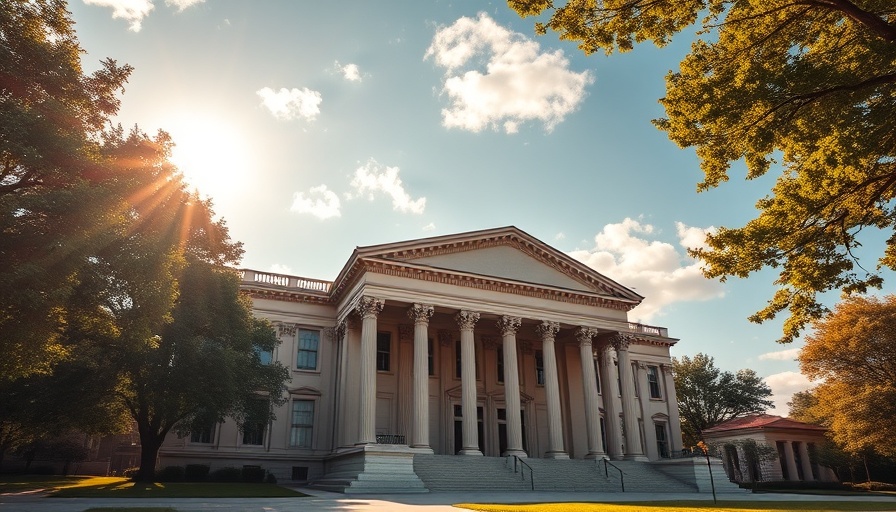
Trump EPA's Grant Controversy: A Legal Setback
The recent ruling from District Judge Tonya S. Chutkan has made headlines as it blocks the Trump Environmental Protection Agency (EPA) from halting $14 billion in climate grants awarded under the Biden administration. This ruling raises questions on bureaucratic practices and highlights the ongoing struggle for funding directed at clean energy initiatives.
Background: The Green Bank Initiative
The funds in question were designated for three climate organizations—Climate United Fund, Coalition for Green Capital, and Power Forward Communities—each receiving substantial financial backing for projects aimed at reducing greenhouse gas emissions. Established through the Inflation Reduction Act of 2022, the Greenhouse Gas Reduction Fund, often referred to as the "green bank," plays a pivotal role in financing clean technology projects, particularly in low-income communities.
Legal Ramifications and Advocacy
Judge Chutkan’s ruling detailed how the EPA's claims of fraud and mismanagement lacked the necessary substantiation to justify terminating these grants. By halting the suspension of the funds, she safeguards the legal rights of the grantees while ensuring compliance with federal regulations. Bafford, the CEO of Climate United, emphasized the ruling as a positive step toward enabling investment into projects that can create jobs and support community energy savings—factors crucial to both economic stability and environmental progress.
The Importance of Community Engagement
These grants serve as a lifeline for communities trying to transition to renewable energy sources. For residents in economically disadvantaged areas, the funding not only supports energy projects but also significant job creation and economic development. As these organizations work to implement solutions, the success of the green bank proves critical in addressing wider environmental issues and fostering a sustainable future.
The Broader Environmental Context
As this legal saga unfolds, it sits at the intersection of environmental policy, judicial oversight, and community welfare. The debate isn’t merely about funding; it represents a larger confrontation over how climate initiatives are administered and ensures that federal programs are not obstructed by arbitrary governmental processes. The outcome could redefine how future climate funding is approached, emphasizing the importance of due process in grant management.
Future Implications: What Lies Ahead
With the funding temporarily secured, the next steps involve not only the grantees but also a call to action for communities to advocate for their rights in accessing these vital resources. Politically and socially, the implications transcend the courtroom, illustrating a polarized landscape where environmental justice movements continue to face opposition from bureaucratic entities. Empowerment through information will be key as communities navigate their opportunities to harness such funds effectively.
Climate action advocacy has never been more urgent, especially as climate challenges intensify. The implications of this ruling extend beyond immediate responses; it encourages continued support for legal measures that protect environmental initiatives against political maneuvering. Communities must stay informed and proactive, ensuring that their prospects for sustainable development are not easily undermined.
 Add Row
Add Row  Add
Add 



 Add Row
Add Row  Add
Add 

Write A Comment